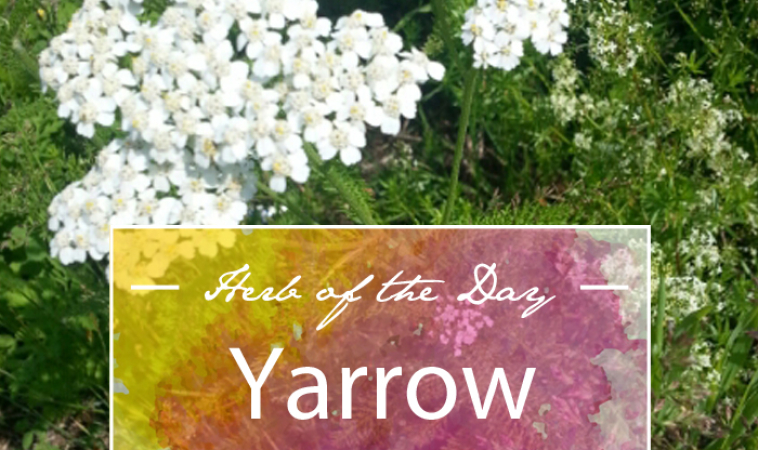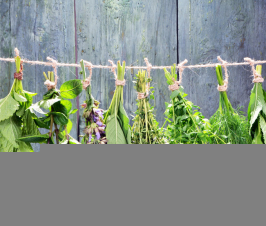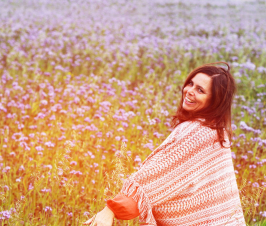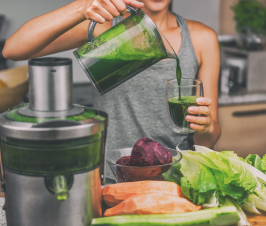I’m terrified of the Apiaceae family. Not bad enough to have nightmares or anything, but super-duper cautious to make sure I know the exact plant at which I’m looking. Sure, it includes regular foods like carrot, celery, dill and parsley. But, it also contains poison hemlock, wild/poison parsnip, and giant hogweed. Yikes!!
My advice is that if you are not sure which one you are looking at, don’t pick it for consuming or for making herbal remedies. All of the apiaceae have flowers arranged like an umbrella and the family used to be called Umbelliferae. I fondly remember picking Queen Anne’s Lace/Wild Carrot as a little girl so that my doll could have a pretty parasol, at least for a few hours.
But this beauty is Yarrow (Achillea millefolium) and is beneficial for almost anything acute. Bloody nose or wound? Powdered yarrow can be applied for its antiseptic, antimicrobial, styptic, anodyne and anti-inflammatory properties. Your child has a fever that either isn’t breaking or is really high? Mix up a cup of yarrow tea to induce sweating, bring down the fever, and provide pain relief. And it’s not just styptic topically, it can also be used internally to alleviate hemorrhoids or excessive menstrual flow. Its astringent qualities make a great herb for any mucus membrane that is inflamed:respiratory, gastrointestinal, urinary and genital tracts.
A cold infusion of the tea (soaked over hours in cold water) is a diuretic, bitter, and tones gastric organs. This would be great for urinary tract infections
And even though this is such a great plant to have around, it also has it’s cautions. Sensitive individuals can develop allergic contact dermatitis with topical usage. Alcohol extractions of yarrow contain more of a phytochemical that can cause vomiting, abdominal cramps, urine retention, renal damage, vertigo, tremors and convulsions. As with most plant medicines, if you take it and it makes you feel bad, then stop. It’s the people who continue to take it that will suffer more severe consequences.
Here’s a great video of Vermont’s Rosemary Gladstar talking about Yarrow. I love her calm voice and relaxing and happy demeanor. http://mountainroseblog.com/video-yarrow-rosemary-gladstar/
 Jen Williamson, ND is a native of Buffalo, New York who earned her Bachelor of Science at Gannon University in Erie, Pennsylvania and a Doctorate of Naturopathic Medicine from Southwest College of Naturopathic Medicine in Tempe, Arizona. While in medical school, she became very involved in the student community, most notably as the President of the Student Government Association. For her service, upon graduation she was given the Outstanding Leadership Award.
Jen Williamson, ND is a native of Buffalo, New York who earned her Bachelor of Science at Gannon University in Erie, Pennsylvania and a Doctorate of Naturopathic Medicine from Southwest College of Naturopathic Medicine in Tempe, Arizona. While in medical school, she became very involved in the student community, most notably as the President of the Student Government Association. For her service, upon graduation she was given the Outstanding Leadership Award.
In the spirit of Docere, the Naturopathic principle of the doctor’s role as teacher, Dr. Williamson was an adjunct professor in the Complementary and Alternative Therapies program at Daemen College. She has had articles in a variety of publications, including Naturopathic Doctor News and Review, SheKnows.com, local Buffalo magazines and papers, as well as her own newsletter, blog and website. While practicing in Buffalo, she also offered over 30 different classes to the public at various events and locations.
In 2012, Dr. Williamson moved to Vermont to expand her practice of Naturopathic Medicine as well as provide an atmosphere that resonates with her medicine for her son, Victor, and husband, David. As a Primary Care Physician at Avalon Natural Medicine, Dr. Williamson focuses on mental/emotional, gastrointestinal, and endocrine disorders. Most of her treatment plans include a combination of nutritional, herbal and homeopathic remedies, but she has also received additional training in Hair Trace Mineral Analysis and Bowel Nosodes.

















